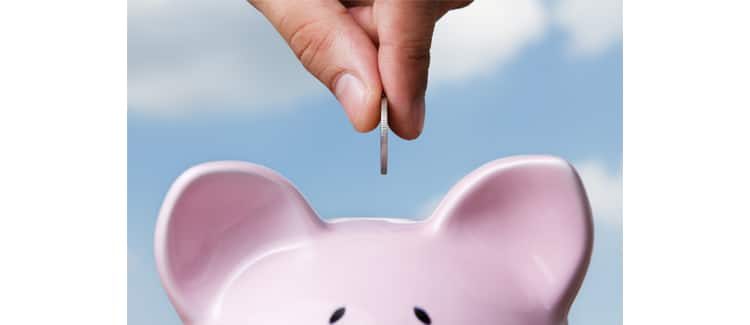How to Save Income Tax under Sections 80D, 80DDB, 80DD and 80U?
Healthcare expenditure can sometimes be overwhelming to deal with. Fortunately, the Income Tax Act of 1961 offers valuable tax deductions under Sections 80D, 80DDB, 80DD, and 80U. These provisions aim to ease this financial burden by allowing you to reduce your taxable income. The deductions are based on eligible medical expenses and expenditures related to disabilities. Let’s discuss each of these sections in detail for the Financial Year 2024-25 (Assessment Year 2025-26).
Section 80D: Deduction for Health Insurance Premiums & Preventive Health Check-ups
Section 80D allows individuals and Hindu Undivided Families (HUFs) to claim deductions for premiums paid towards health insurance policies and expenses incurred on preventive health check-ups.
Who Can Claim?
- Individuals (for self, spouse, dependent children, and parents)
- Hindu Undivided Families (HUF)
Eligible Expenses & Limits (FY 2024-25):
| Category of Insured/Expense | Maximum Deduction Limit (per financial year) |
| For Self, Spouse, & Dependent Children (all below 60 years) | ₹25,000 |
| For Self, Spouse, & Dependent Children (anyone 60 years or above) | ₹50,000 |
| For Parents (below 60 years) | ₹25,000 (additional to the above) |
| For Parents (anyone 60 years or above) | ₹50,000 (additional to the above) |
Preventive Health Check-ups |
₹5,000 (included within the overall limits above) |
Other Features:
- Payment Mode: Health insurance premiums must be paid by any mode other than cash (e.g., net banking, debit/credit card, UPI, digital wallets).
- Preventive Health Check-ups: Expenses up to ₹5,000 can be claimed in cash for preventive health check-ups. This ₹5,000 limit is part of the overall Section 80D limits (e.g., if you spend ₹25,000 on premium and ₹5,000 on check-up for self, spouse, kids below 60, total deduction is capped at ₹25,000).
- Medical Expenditure for Senior Citizens (without insurance): For individuals aged 60 years or above who are not covered by any health insurance policy, actual medical expenses incurred (up to the ₹50,000 limit) can be claimed as a deduction. This allows senior citizens who might find it difficult to get health insurance to still avail a tax benefit on their medical costs. This deduction must also be paid via banking channels.
- Maximum Cumulative Deduction: If you pay premiums for both your family (self, spouse, children) and your parents, the combined maximum deduction can go up to ₹1,00,000 (if both you/family and parents are senior citizens).
Section 80DDB: Deduction for Medical Treatment of Specified Diseases
Section 80DDB offers a deduction for expenses incurred on the medical treatment of specific, critical diseases or ailments for yourself or your dependent relatives.
Who Can Claim?
- Resident Individuals (for self, spouse, dependent children, parents, brothers, and sisters)
- Hindu Undivided Families (HUF) (for any member)
Eligible Diseases:
The deduction is available for treatment of "specified diseases" as notified under Income Tax Rule 11DD. These typically include:
- Neurological diseases (e.g., Dementia, Parkinson's Disease, Ataxia, etc., where disability is 40% or more)
- Malignant Cancers
- Full Blown Acquired Immuno-Deficiency Syndrome (AIDS)
- Chronic Renal Failure
- Haematological disorders (e.g., Hemophilia, Thalassemia)
Note: It's advisable to refer to the Income Tax Rules for the complete and updated list of specified diseases and required medical authorities.
| Age of the Patient | Maximum Deduction Limit (FY 2024-25) |
| Below 60 years | ₹40,000 |
| 60 years or above (Senior & Super Senior Citizens) | ₹1,00,000 |
Deduction Limits (FY 2024-25):
The deduction is the lower of the actual expenses incurred OR the specified maximum limit, reduced by any amount received from an insurance policy or reimbursed by an employer.
Other Features:
- Actual Expense Basis: Unlike some other deductions, Section 80DDB of the Income Tax Act is based on the actual expenditure incurred, up to the prescribed limit.
- Insurance/Reimbursement Adjustment: Any amount received from a health insurance policy or reimbursed by an employer for the treatment must be deducted from the eligible amount.
- Medical Certificate (Form 10-I): To claim this deduction, a prescription/certificate in Form 10-I from a specialist doctor (e.g., Neurologist, Oncologist, Nephrologist, etc.) is mandatory. This certificate specifies the disease and is required for submission with your Income Tax Return.
- Non-resident Indians (NRIs) are not eligible for this deduction.
Section 80DD: Deduction for Dependent with Disability
Section 80DD provides a fixed deduction for Resident Individuals and HUFs who incur expenses for the medical treatment (including nursing, training, and rehabilitation) of a dependent relative with a disability, or who have deposited money into an approved scheme for their maintenance.
Who Can Claim?
- Resident Individuals (for spouse, dependent children, parents, brothers, and sisters who are disabled and wholly/mainly dependent)
- Hindu Undivided Families (HUF) (for any disabled member of the HUF)
Deduction Limits (FY 2024-25):
This is a flat deduction, regardless of the actual expenses incurred.
| Type of Disability (of Dependent) | Deduction Amount (FY 2024-25) |
| Normal Disability | ₹75,000 (fixed) |
| Severe Disability | ₹1,25,000 (fixed) |
Other Features:
- Fixed Deduction: The amount of deduction is fixed based on the severity of the disability, not on actual expenses incurred.
- Disability: Refers to a person with at least 40% disability (but less than 80%) as certified by a prescribed medical authority. This includes blindness, low vision, leprosy-cured, hearing impairment, locomotor disability, mental retardation, and mental illness.
- Severe Disability: Refers to a person with 80% or more disability, or suffering from multiple disabilities, autism, or cerebral palsy.
- Medical Certificate (Form 10-IA): A valid certificate of disability in Form 10-IA from a prescribed medical authority (e.g., Civil Surgeon/Chief Medical Officer of a government hospital or a specialist neurologist/paediatric neurologist) is mandatory. This certificate should be kept handy, though typically not submitted directly with the ITR unless requested for scrutiny.
- Non-resident Indians (NRIs) are not eligible for this deduction.
Section 80U: Deduction for Individuals with Disability
Section 80U allows a fixed deduction to a Resident Individual taxpayer if they themselves are a person with a disability.
Who Can Claim?
Resident Individuals (the taxpayer themselves must have the disability)
Deduction Limits (FY 2024-25):
This is also a flat deduction, irrespective of actual expenses.
| Type of Disability (of Taxpayer) | Deduction Amount (FY 2024-25) |
| Normal Disability | ₹75,000 (fixed) |
| Severe Disability | ₹1,25,000 (fixed) |
Other Features:
- For Self-Disability Only: This section is specifically for the taxpayer themselves having a disability, unlike 80DD which is for a dependent.
- Disability Definition: The definitions of 'Normal Disability' (40% to less than 80%) and 'Severe Disability' (80% or more, including autism and cerebral palsy) are the same as those mentioned for Section 80DD.
- Medical Certificate (Form 10-IA): A valid disability certificate in Form 10-IA from a prescribed medical authority is mandatory for claiming this deduction. Ensure the certificate is valid for the financial year for which the deduction is claimed.
- Non-resident Individuals (NRIs) are not eligible for this deduction.
Important Note: The deductions discussed above are generally available under the Old Tax Regime. Under the New Tax Regime (default from FY 2023-24), most deductions, including those under Chapter VI-A (like 80D, 80DDB, 80DD, 80U), are not available. Taxpayers can choose between the old and new regimes based on which offers greater tax benefits for their specific financial situation.
Conclusion
Sections 80D, 80DDB, 80DD, and 80U are crucial provisions in the Income Tax Act that provide significant tax relief related to healthcare and disability expenses. While they all aim to reduce your tax burden, it's important to understand the distinctions in their applicability, deduction limits, eligible expenses, and required documentation (like Forms 10-IA and 10-I).
Always ensure you are claiming deductions under the correct section and have all the necessary certificates and proofs. For personalized tax advice or assistance with filing your income tax return, it is highly recommended to consult a qualified tax professional. Stay informed to maximize your tax savings!
FAQs
-
Can we claim both 80U and 80DDB together?
No, you cannot claim both Section 80U and Section 80DDB together. Section 80U is for individuals with disabilities, while Section 80DDB is for medical expenses incurred for the treatment of a dependent with a severe disability. You can only claim one of these deductions. -
Can we claim 80D and 80DD?
Yes, you can claim both Section 80D and Section 80DDB. Section 80D is a general deduction for medical expenses, while Section 80DDB is an additional deduction for medical expenses incurred for the treatment of a dependent with a severe disability. You can claim both deductions separately. -
What is the maximum deduction under 80D and 80DDB?
The maximum deduction under Section 80D is Rs 25,000 for individuals and Rs 50,000 for senior citizens (aged 60 or above). The maximum deduction under Section 80DDB is Rs 1 lakh per dependent. -
How can I save tax under 80DD?
To save tax under Section 80DD, you must maintain original bills and receipts for medical expenses incurred for the treatment of a dependent with a severe disability. You must also submit a certificate from a registered medical practitioner certifying the disability of the dependent. You can claim the deduction by submitting these documents along with your income tax return. -
How do I save tax on health insurance?
Use Section 80D for health insurance premiums and preventive check-ups. -
How can I get tax benefits for critical illness treatment?
Section 80DDB offers deductions for treating specified diseases. -
Can I claim tax for a disabled dependent?
Yes, Section 80DD allows fixed deductions for a dependent with disability. -
If I have a disability, can I get a tax deduction?
Yes, Section 80U provides a fixed deduction if you yourself have a disability. -
Are these deductions available in the New Tax Regime?
No, these medical and disability deductions are generally for the Old Tax Regime.
˜The insurers/plans mentioned are arranged in order of highest to lowest first year premium (sum of individual single premium and individual non-single premium) offered by Policybazaar’s insurer partners offering life insurance investment plans on our platform, as per ‘first year premium of life insurers as at 31.03.2025 report’ published by IRDAI. Policybazaar does not endorse, rate or recommend any particular insurer or insurance product offered by any insurer. For complete list of insurers in India refer to the IRDAI website www.irdai.gov.in
*All savings are provided by the insurer as per the IRDAI approved insurance plan.
^The tax benefits under Section 80C allow a deduction of up to ₹1.5 lakhs from the taxable income per year and 10(10D) tax benefits are for investments made up to ₹2.5 Lakhs/ year for policies bought after 1 Feb 2021. Tax benefits and savings are subject to changes in tax laws.
¶Long-term capital gains (LTCG) tax (12.5%) is exempted on annual premiums up to 2.5 lacs.
++Source - Google Review Rating available on:- http://bit.ly/3J20bXZ


- SIP Calculator
- Income Tax Calculator
- Compound Interest Calculator
- NPS Calculator
- Show More Calculator
Income Tax articles
Explore the popular searches and stay informed
- LIC
- Investment Plan
- Annuity Plan
- Child Plan
- Pension Plan
- ULIP Plan
- Child Investment Plan
- SIP
- LIC Calculator
- SIP Calculator
- SBI SIP
- ULIP Calculator
- Sukanya Samriddhi Yojana
- Best SIP Plans
- Retirement Planning
- SBI SIP Calculator
- HDFC SIP Calculator
- Sukanya Samriddhi Yojana Interest Rate
- NPS Interest Rate
- Deferred Annuity Plans
- SBI Annuity Deposit Scheme Calculator
- Immediate Annuity Plans
- Post Office Child Plan
- Prime Minister Schemes For Boy Child
- Government Schemes for Girl Child
- 50k Pension Per Month
- Atal Pension Yojana Calculator
- Best Pension Plan in India
- CIBIL Score
- 1 Crore Term Insurance
- Best Term Insurance Plan
- Term Insurance for Women
- Term Insurance for NRI
- Term Insurance
- Term Insurance Calculator
- Life Insurance
- Term Insurance with Return of Premium
- Whole Life Insurance
- Term Insurance vs Life Insurance
- What is Term Insurance
- Life Insurance Calculator
- 5 Crore Term Insurance
- 2 Crore Term Insurance
- 50 Lakh Term Insurance
- Term Insurance for Housewife
- Benefits of Term Insurance
- Term Insurance Terminology
- Medical Tests for Term Insurance
- Term Insurance for Self Employed
- Claim Settlement Ratio
- 10 Crore Term Insurance
- Term Insurance for Smokers
- 1.5 Crore Term Insurance
- Zero Cost Term Insurance
- Home Loan Insurance Calculator
- FIRE Calculator
- EMI Calculator
















